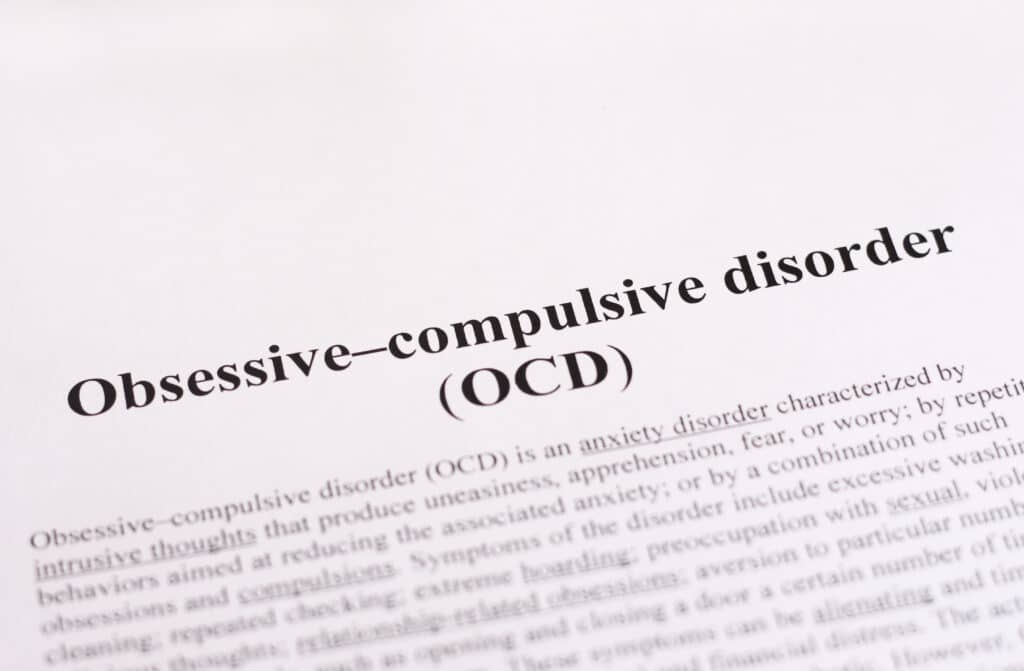
Disorders like OCD can dictate many areas of your life and limit the enjoyment of certain activities. Opening doors or even driving can illicit real fears in those with obsessive compulsive disorder. Therapy has been shown to improve symptoms of OCD and help you learn to control your compulsions. Ogden Psychological Services can help provide multiple therapy options for patients and gain more control of their life.
What Is Obsessive Compulsive Disorder?
OCD is a chronic disorder where a person has uncontrollable, reoccurring thoughts and behaviors that they feel the urge to repeat over and over. Engaging in these obsessions and compulsions helps to ease the person’s anxiety even if they are not rational. It can be difficult to complete other tasks when negative and intrusive thoughts require you to complete an action before you can begin your other task.
Studies have shown that 1 in 50 men and women have OCD in the United States. Suffering from other anxiety, eating, and other disorders is common in those who also experience OCD.
Facing Fears
When seeking therapy for OCD, the first thing a therapist will work with you on is facing the fears you currently have. This can be really tough for some patients and will require quite a bit of work. Overcoming fears is not something that happens overnight, but with the right therapy techniques, working to show that fears do not have to control us can help those with obsessive compulsive disorder.
Behavioral Therapy
There are a variety of behavioral therapies that can be used for anxiety or OCD. Exposure and response prevention (ERP) is a popular method that gradually exposes the patient to obsessions and they work to avoid or manage their compulsions towards it. This can be done at any pace and a therapist should never force a patient to do something they are totally uncomfortable with.

Therapy will be uncomfortable, but fear and anxiety over certain actions are very real and are often linked to trauma. Overcoming obsessions and compulsions can start by working with the ones that don’t bother you that much and working up. The more you repeat the easier tasks without the compulsion, the easier the other tasks will become.
Other behavior therapies that can be used include imaginal exposure, habit reversal training, and cognitive therapy.
Therapy Doesn’t Work Overnight
Just like any habit, your OCD will not disappear overnight. Working in therapy is helpful for OCD patients because it is gradual and allows you to make mistakes and work towards a goal. When you jump into cold water, your body feels an initial shock, but the longer you are in the water, the more comfortable it becomes. Your body and brain will adjust to new practices with repetition and cognitive work.
Physical Or Mental Obsessions
Each patient with OCD will be vastly different, but there are some common obsessions that therapists see most often. Some of these obsessions include:
- Fear of germs or contamination
- Unwanted forbidden thoughts about sex, religion, or harm
- Intrusive and aggressive thoughts
- Having items in symmetrical or perfect order
- Superstitions or not doing something will cause negative results
- Doing a task until it is perfect
Dealing with obsessions and their following compulsions can cause you to miss important appointments or just enjoy your day. Therapy can help you work on these compulsions in a controlled environment while working with a medical professional to see if the medication can also help.
Medication For OCD
Taking medication for OCD requires an individualized treatment plan while visiting an OCD specialist. Many prescriptions can help reduce OCD symptoms so that you can function better day to day.
When patients start taking any new medication, side effects can happen. Working to find the right medication with the right dosage can take some time. Work with your doctor to find an OCD medication that has the least amount of side effects for you and that helps you actually see the benefits. It will take time and patience to find what medication really works, as it takes at least a month for your body to truly adjust to the medication. Referring to our earlier discussion on how your OCD will not disappear overnight, prescription medicines will not take all your symptoms away in one day either.
Treatment With Ogden Psychological Services

Our therapists work to treat each patient with an individual mindset. We work towards your goals and only suggest techniques that we truly feel will help you.
Working with a therapist and asking for help is not a sign of weakness, but rather a sign of strength in taking charge of your health. Mental health is taken just as seriously as any other health issue in our office. When you work with OPS, you will have peace of mind that we will make you comfortable at each visit and want to see your progress. Taking privacy seriously, working toward your unique goals, and empowering clients are important to all of us here at Ogden Psychological Services. Contact our office today or fill out a contact form on our website.
